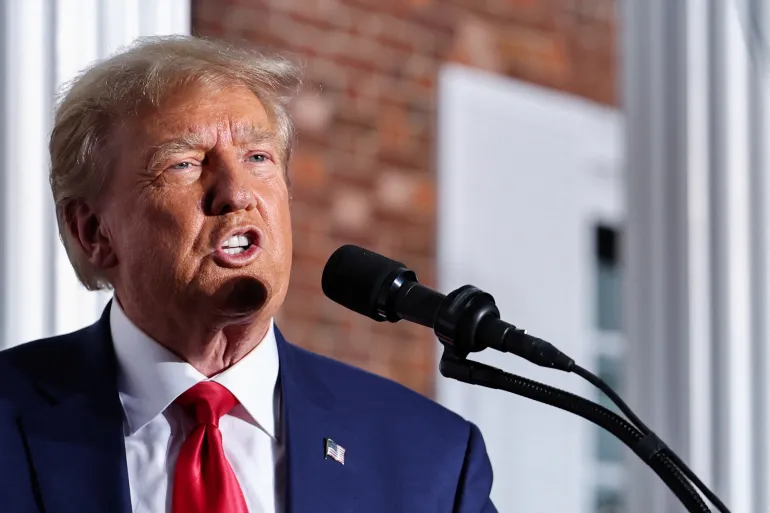Donald Trump Pleads Not Guilty to Charges in Miami Court
Former United States President Donald Trump appeared in court on Tuesday and pleaded not guilty to 37 charges related to mishandling classified information. This indictment marks the first time a former US president has faced federal prosecution.
The charges against Trump, which include 31 counts under the Espionage Act, also involve conspiracy to commit obstruction and false statements. The allegations claim that Trump unlawfully retained numerous sensitive national security files at his Mar-a-Lago estate in Florida after leaving office in 2021. Furthermore, he is accused of refusing to return the documents and conspiring to impede the investigation into their retrieval. Additionally, Trump is charged with sharing classified information with individuals lacking proper security clearance.
According to the indictment, the materials Trump stored at his residence encompassed nuclear programs, defense capabilities, and weapons information of both the United States and foreign governments.
What’s Next?
It is anticipated that it will take a year or longer for the trial to commence. Trump left the court without any conditions or travel restrictions, and no cash bond was required. US Magistrate Judge Jonathan Goodman ruled that he should not communicate with potential witnesses in the case.
Trump’s aide, Walt Nauta, who is also implicated in the case, appeared alongside him but will not enter a plea until June 27 due to not having a local lawyer. Like Trump, Nauta was released without posting a bond and was instructed not to speak with other witnesses.
The prosecution is expected to begin sharing evidence with Trump’s legal team, which may include extensive correspondence between Trump’s defense, the US National Archives and Records Administration, and the prosecutors as they negotiate the handling of documents.
Trump’s lawyers will likely file a motion to dismiss the case, potentially arguing that he had declassified the documents before taking possession of them. They may also claim prosecutorial misconduct, including alleged violations of the attorney-client privilege.
While motions to dismiss are common in criminal cases, they rarely succeed unless defendants can convince a judge that their case is fundamentally flawed and unsuitable for a jury trial. At this stage, the benefit of the doubt typically favors the prosecutors regarding factual allegations.
Protests and Trump’s Response
Hundreds of Trump’s supporters gathered outside the Miami court to protest against the charges, echoing his assertion that it is a politically motivated smear campaign aimed at undermining his potential 2024 presidential campaign. However, the number of protesters was lower than expected and was overshadowed by a significant police and media presence. A small group of counter-protesters also made their presence known, but the day passed largely without incident.
Despite his court appearance, Trump capitalized on the event for political purposes. After leaving the court, he greeted crowds, visited a Cuban restaurant in Miami for a moment of prayer with religious leaders, and engaged with supporters, even taking photos with notable figures. He later flew to New Jersey, where he received a warm welcome from his backers and delivered a speech resembling a rally in front of a clubhouse reminiscent of the White House.
Presidential Eligibility Despite Conviction
If convicted, Trump would still be eligible to run for the US presidency in the 2024 elections. The US Constitution stipulates that a candidate must be a natural-born citizen, at least 35 years old, and a resident of the country for a minimum of 14 years.
